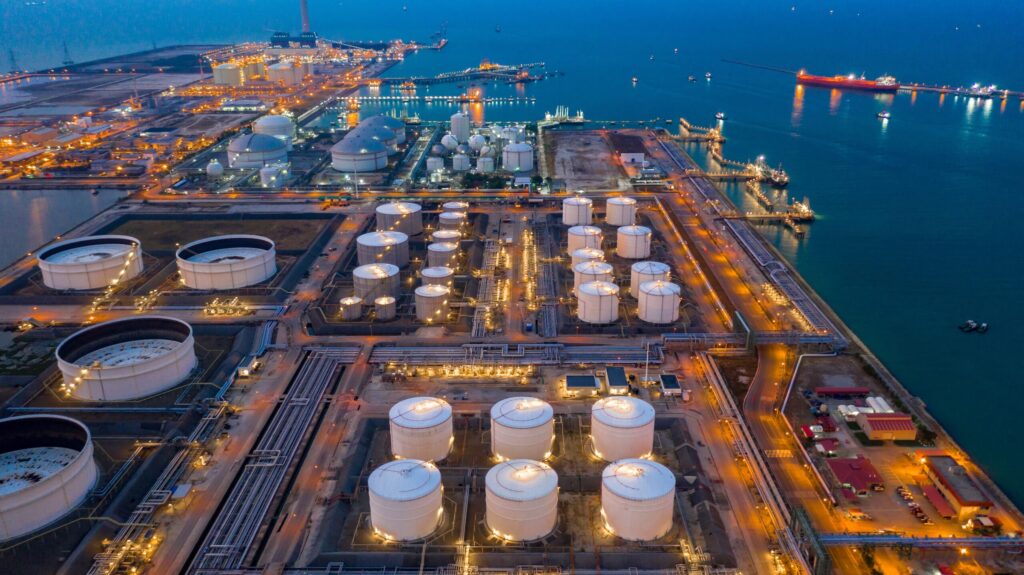The Trump administration’s aggressive tariffs announced on “Liberation Day” included exemptions for crude oil and a handful of other energy products such as rare minerals. Some of those tariffs have been rolled back, but current tariff levels are still the highest they’ve been in almost a century and an investigation into critical minerals and derivatives is underway.
The current exemptions for crude oil and rare minerals will not save the oil and gas industry from feeling the pinch. Tariffs will squeeze American energy production from several angles, from extraction to refining to electricity production and transmission.
Tariffs Raise the Price of Steel
Raw materials like crude oil and rare minerals are not the only inputs to the energy ecosystem we import. Across the value chain, petroleum products need to be transported through pipes many times. What are those pipes made of? Steel. In the most recent Federal Reserve Bank of Dallas survey of the oil and gas industry, several comments highlighted steel tariffs (25 percent, levied under Section 232) specifically as driving higher costs and making expanding production less appealing.
Tariffs are pushing up the price of steel and hitting specialized types of steel products used for technologically challenging parts of the oil and gas extraction process. Offshore oil drilling rigs in the Gulf, for instance, need non-recycled steel. The US steel industry specializes in recycled steel, so offshore oil rigs often purchase specialty pipes from abroad. Overall,15 percent of imported iron and steel pipes used in oil and gas operations come from Japan, but in specific categories like seamless stainless steel tubing and casing pipe, Japanese imports are a clear majority.


Tariffs Hit Capital Equipment, from Oil Extraction to Electricity Transmission
Tariffs will also hit more complex equipment and machinery. That will punish American energy across the ecosystem. For oil and gas extraction, tariffs hit heavy equipment used on American oil fields. The harm is magnified further down the value chain: tariffs will hit major categories of equipment used by oil refiners and natural gas processors, such as air and gas compressors and other pumping equipment. Italy, for instance, manufactures certain compressors important to liquid natural gas (LNG) liquefaction processes.
Expanding beyond the oil and gas production ecosystem, tariffs on capital goods will also hurt electric power generation. As demand for electricity has grown, American electricity producers have imported equipment from abroad to expand supply. Wood Mackenzie, an energy analytics firm, noted that 80 percent of critical transmission and distribution equipment in the US market was imported in 2023. And of US imports of electricity generation, transmission, distribution, and storage equipment, 50 percent came from two sources: Mexico and China.

Gas turbines are illustrative too. Unlike specialized stainless steel pipes, gas turbines are an American manufacturing strength. We are a net exporter of gas turbines and we lead the world in gas turbine production. Nonetheless, growing demand for turbines has meant delays. While American turbine manufacturers expand production, imported turbines can help the buildout in the meantime. Tariffs raise the cost of those imports and extend construction delays, potentially preventing new electricity supply from coming online.
Retaliatory Tariffs Hit American Exports
While the US administration may not want to hit crude oil with tariffs, other governments may disagree. Petroleum products are a large share of American exports, particularly to the European Union. Hurting the market for American oil products abroad will hurt American production. In response to the “reciprocal” 125 percent tariffs the US has levied on imports from China, China placed on US exports. In 2023, US oil and gas exports to China totaled $17.6 billion, accounting for more than 12 percent of the US’s China-bound exports.
Even before China’s announcement of the 125 percent retaliatory tariffs, earlier retaliatory action by the Chinese effectively stopped the import of American LNG. Tariffs, of course, are not the only way China can retaliate on trade. China can directly restrict exports to the United States. Most relevant for the energy industry, China has restricted the export of several rare earth minerals.
Macroeconomic Slowdown Is the Biggest Threat
So far, we’ve focused on industry-level effects. However, the real potential hammer falling on American oil and gas production is a broader macroeconomic slowdown. Oil and gas is a cyclical business: an economic slowdown means a reduction in energy demand, and reduced demand means companies will reduce their quantity supplied—i.e., they will reduce production.
Ironically, the upshot of a global economic slowdown and domestic recessionA recession is a significant and sustained decline in the economy. Typically, a recession lasts longer than six months, but recovery from a recession can take a few years.
crushing demand would be lower gas prices. In that scenario, lower prices from reduced demand would likely offset (and then some) any price increases from tariffs on capital inputs.
However, as economist and blogger Scott Sumner often says, “never reason from a price change.” Lower prices due to a positive supply shock, like new production being brought online or new technology lowering extraction costs, are good news. Lower prices due to a negative demand shock, on the other hand, could be very bad news.
The Big Picture
The Trump administration advocates an “energy dominance” agenda to boost US energy production and lower costs. Its tariffTariffs are taxes imposed by one country on goods imported from another country. Tariffs are trade barriers that raise prices, reduce available quantities of goods and services for US businesses and consumers, and create an economic burden on foreign exporters.
agenda runs directly counter to it. American drillers extract American crude oil with Japanese steel. American refiners process American and Canadian crude oil with Italian compressors, and American natural gas power plants transmit electricity from American-made gas turbines on Chinese and Mexican wires. Raising costs with taxes on business inputs and pushing the economy into an uncertainty-driven slowdown will hurt American energy production, not help it.
Stay informed on the tax policies impacting you.
Subscribe to get insights from our trusted experts delivered straight to your inbox.
Share this article

